Theology and Public Philosophy
Theology and Public Philosophy
Four Conversations
Kenneth L. Grasso and Cecilia Rodriguez Castillo
LEXINGTON BOOKS
Lanham Boulder New York Toronto Plymouth, UK
Published by Lexington Books
A wholly owned subsidiary of The Rowman & Littlefield Publishing Group, Inc.
4501 Forbes Boulevard, Suite 200, Lanham, Maryland 20706
www.lexingtonbooks.com
Estover Road, Plymouth PL6 7PY, United Kingdom
Copyright 2012 by Lexington Books
All rights reserved. No part of this book may be reproduced in any form or by any electronic or mechanical means, including information storage and retrieval systems, without written permission from the publisher, except by a reviewer who may quote passages in a review.
British Library Cataloguing in Publication Information Available
Library of Congress Cataloging-in-Publication Data
Theology and public philosophy : four conversations / edited by Kenneth L. Grasso, Cecilia Rodriguez Castillo.
p. cm.
Includes bibliographical references and index.
ISBN 978-0-7391-6663-5 (cloth : alk. paper) -- ISBN 978-0-7391-6664-2 (pbk. : alk. paper) -- ISBN 978-0-7391-6665-9 (ebook)
1. Civil religion--United States. 2. Religion and sociology--United States. I. Grasso, Kenneth L., editor of compilation. II. Castillo, Cecilia Rodriguez, editor of compilation.
BL2525.T49 2012
201'.70973--dc23
2011047313

The paper used in this publication meets the minimum requirements of American National Standard for Information Sciences Permanence of Paper for Printed Library Materials, ANSI/NISO Z39.48-1992.
Printed in the United States of America
Contents
Acknowledgments
Introduction: Theology and the American Civil Conversation
Kenneth L. Grasso
Part I: Charles Taylor, Perils of Moralism and Responses
Charles Taylor
| 2 | Ockhams Children: Nomolatry, Nominalism, and Contemporary Moral Culture |
Kenneth L. Grasso
Fred Dallmayr
William Schweiker
Part II: Nicholas Wolterstorff, The Authorities Are Gods Servants: Is a Theistic Account of Political Authority Still Viable or Have Humanist Accounts Won the Day? and Responses
| 5 | "The Authorities Are Gods Servants": Is a Theistic Account of Political Authority Still Viable or Have Humanist Accounts Won the Day? |
Nicholas Wolterstorff
J. Budziszewski
| 7 | On the Origin and Nature of Political Authority: A Response to Nicholas Wolterstorff |
Jeanne Heffernan Schindler
| 8 | Is Consent a Theological Category? |
Joshua Mitchell
Part III: Robin W. Lovin, Consensus and Commitment: Real People, Religious Reasons, and Public Discourse and Responses
| 9 | Consensus and Commitment: Real People, Religious Reasons, and Public Discourse |
Robin W. Lovin
| 10 | Re-framing the Conversation |
Charles Mathewes
| 11 | Why We Can Talk to Each Other: A Response to Robin Lovin |
Jonathan Chaplin
| 12 | Liberal Democracy: An Alternative to the Idolotry of the Nation State? |
Michael L. Budde
Part IV: Jean Porter, Moral Traditions and Responses
Jean Porter
| 14 | Adjudicating Moral Inquiry: Scientific Reason and/or Dialogical Encounters |
Eloise A. Buker
| 15 | Alasdair MacIntyre: Closet Liberal |
Christopher Beem
| 16 | Taking the American Moral Tradition Seriously |
Peter Berkowitz
Jean Bethke Elshtain
Index
About the Contributors and Editors
Acknowledgments
This volume grew out of a conference at the University of Chicago Divinity School sponsored by The Pew Forum on Religion and Public Life and The Pew Christian Scholars Programs Study Group on Politics and the Problem of Human Nature. The editors express their gratitude to the Divinity School for hosting the conference and The Pew Forum on Religion and Public Life and the Pew Christian Scholars Program for their generous support. We especially thank the Team Leader of The Pew Study Group on Politics and the Problem of Human Nature, Jean Bethke Elshtain, for her encouragement and wise counsel.
We also express our gratitude to Texas State University-San Marcos for its ongoing support of our scholarship. Most importantly of all, we thank our families for the understanding and patience they displayed while we were working on this project.
Introduction
Theology and the American Civil Conversation
Kenneth L. Grasso
The essays composing this volume address a subject that has come to command increased attention over the course of the past thirty years, namely, the subject of religion and American public life. This is not to suggest, however, that the essays focus on the particular political controversies that come to mind when the subject of religion and politics is invokedcontroversies over things like the meaning of separation of church and state, abortion, gay marriage, the teaching of evolution and intelligent design in the public schools, abstinence-only sex education, embryonic stem cell research, etc. Nor is it to suggest that they explore the political activities of various religious leaders and faith communities, the impact of religion on voting behavior and elections, or the changing contours of the interaction between religion and American political culture. Rather, in a variety of diverse ways, these essays explore the broader and deeper question of the possible contribution of theology and theologically informed moral reflection to the contemporary quest for a public philosophy capable of sustaining and advancing Americas ongoing experiment in self-government and ordered liberty. They take shape against the backdrop of two sets of developments in what John Courtney Murray liked to call the American civil conversation. The first of these concerns the resurgence of public religion; the second, the state of American public life.
REDISCOVERY OF PUBLIC RELIGION
As these processes advanced, religion was fated to disappearto wither away first in the public sphere life and then in the lives of individuals; religion was destined to experience first privatization and then extinction. Modernization, in short, entailed secularization.
The past several decades have witnessed, this is to say, the rediscovery of religion not merely as a private avocationor even a private vicebut as a visible, corporate reality, a community of thought, that profoundly affects public life. The events that have compelled this rediscoveryI say compelled here because to many this rediscovery has not, to put it mildly, been a welcome oneare well-known and include the emergence of the Solidarity movement in Poland and, more broadly, the role of religion in the demise of communism; the role of religious groups and institutions in democratizations third wave; the resurgence of Islam and, in particular, the rise of what is sometimes termed jihadism culminating in the events of 9/11 and their aftermath; and the rise of the Religious Right as an important political force in American politics. And, the rediscovery of religion as a public force in the modern world, in turn, has spurred a rediscovery of the inescapable linkage between religion and public life.

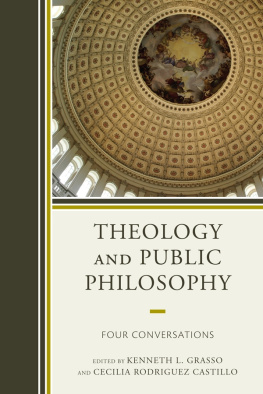

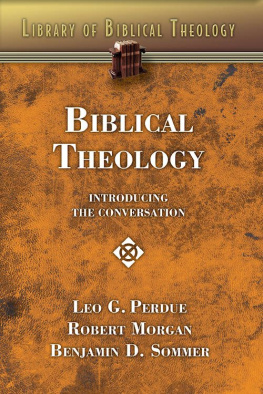
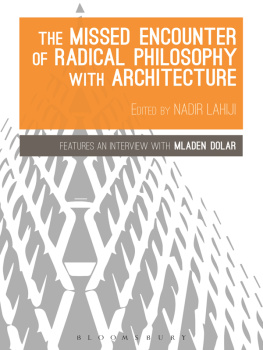
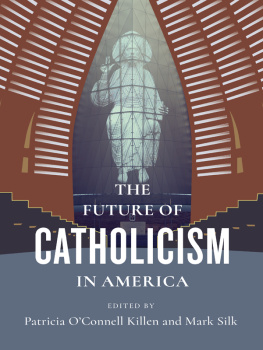
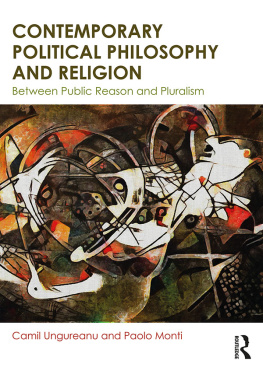
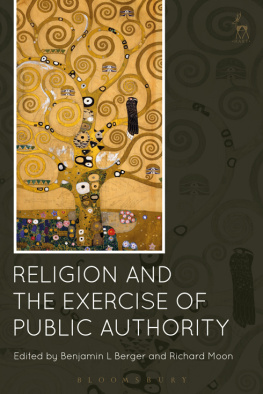
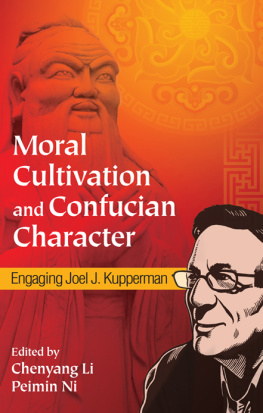
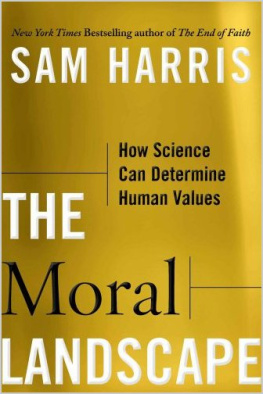
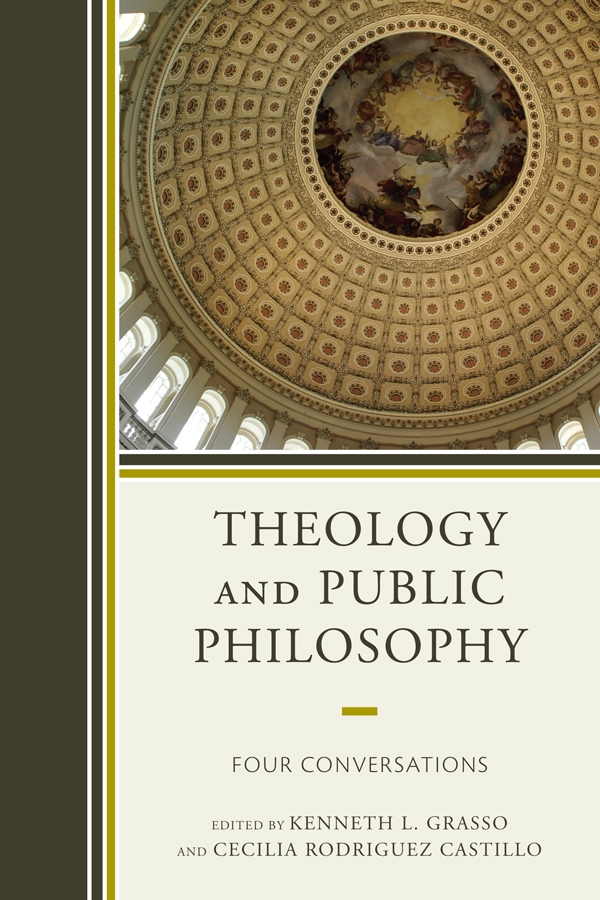
 The paper used in this publication meets the minimum requirements of American National Standard for Information Sciences Permanence of Paper for Printed Library Materials, ANSI/NISO Z39.48-1992.
The paper used in this publication meets the minimum requirements of American National Standard for Information Sciences Permanence of Paper for Printed Library Materials, ANSI/NISO Z39.48-1992.